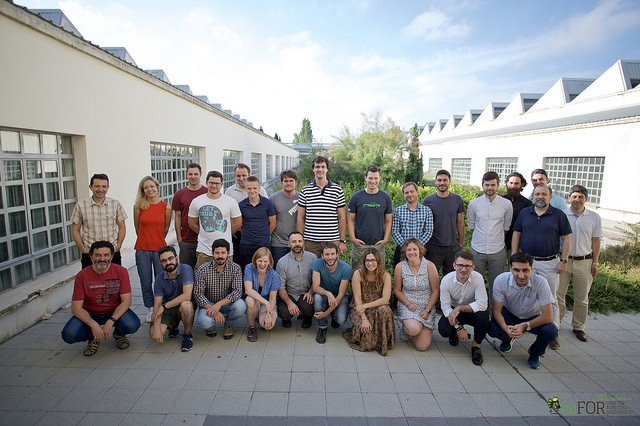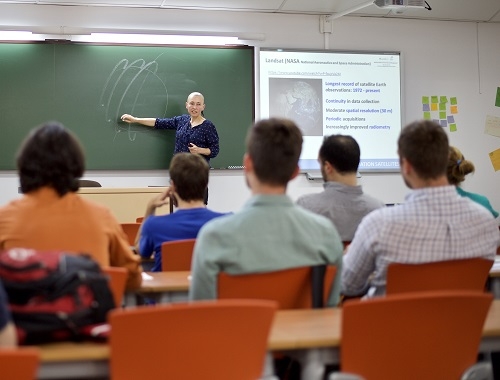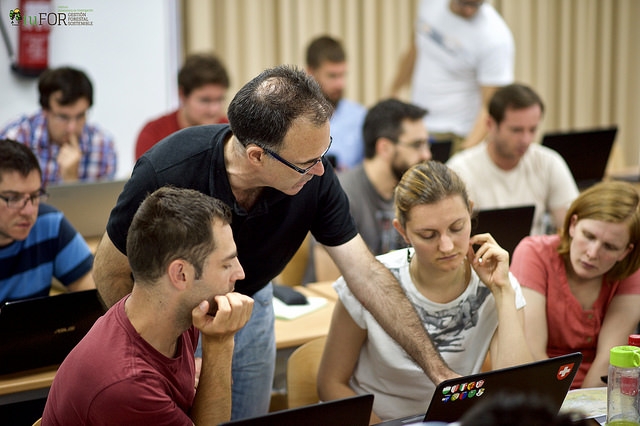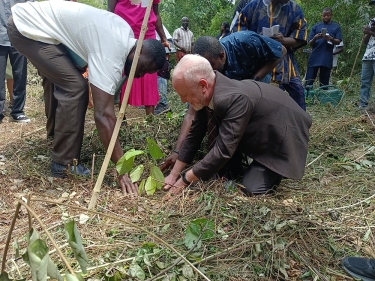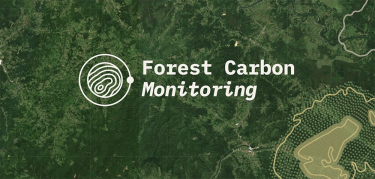Student diary: Forest Data Management and Analysis Summer School
 |
 |
 |
 |
In July, the EFI Planted Forests Facility (EFIPLANT) co-organised with the Universidad de Valladolid an International Summer School on Forest Data and Management. The summer school, which formed part of the EFIPLANT Capacity Building Programme, was hosted by the Universidad de Valladolid in the Campus of Palencia (Spain) from 9 to 13 July 2018. It focused on providing background information, practical applications and training in multiple aspects related to data management in the forest sector.
The workshop was attended by 24 participants with diverse professional backgrounds in the forest and environmental sector (forest consultants, forest managers, researchers, postgraduate students). They formed a multicultural group with attendees coming from different parts of Europe (Spain, Romania, Georgia, Finland, Romania, Ireland, Italy, UK, Portugal, Russia, Germany, Poland, Greece).
Expert lecturers came from the Universidad de Valladolid, iuFOR, INIA-CIFOR, the National Museum of Natural Sciences of Spain, the Universitat de Lleida, the University of Eastern Finland, and the European Forest Institute. Their background covered different disciplines of expertise ranging from forest ecology and management to civil engineering, computer sciences and telecommunications.
Organisation and Lecturers
- Felipe Bravo - iuFOR & Universidad de Valladolid, Palencia (Spain)
- Christophe Orazio - European Forest Institute, Bordeaux (France)
- Andrés Bravo-Oviedo - iuFOR & Museo Nacional de Ciencias Naturales, Dpt de Biogeografía y Cambio Global, CSIC- Madrid (Spain)
- Óscar Angulo Torga - IMUVA, Universidad de Valladolid, Valladolid (Spain)
- Cristina Gómez - INIA-CIFOR, Madrid (Spain)
- José Martínez Rubio - Universidad de Valladolid, Valladolid (Spain)
- Sergio de Miguel - Universitat de Lleida, Lleida (Spain)
- Cristóbal Ordóñez - iuFOR & Universidad de Valladolid, Palencia (Spain)
- Adrián Pascual - University of Eastern Finlad, Joensuu (Finland)
- Fernando Pérez - Föra, Vigo (Spain)
- Ricardo Ruiz Peinado - iuFOR & INIA-CIFOR, Madrid (Spain)
- Sara Uzquiano Pérez - iuFOR & Universidad de Valladolid, Palencia (Spain)
- Guillermo Gorgoso - ETS Ing Telecomunicaciones, Universidad de Valladolid (Spain)
- Juan Ignacio Asensio - ETS Ing Telecomunicaciones, Universidad de Valladolid (Spain)
Thank you to Pilar Valbuena (iuFOR) for the course pictures available on flickr.
All the material and lectures from the summer school have been made available to the participants.
Student diary
Day 1 - Monday 9 July
The Summer School started with an introduction to data gathering and storage, with emphasis on the essential importance of data storage and naming in forest sciences and long-term analysis: “Don't forget that your data need to be easy to find and used by others in the future, starting with yourself”.
The day continued with lectures about some of the latest tools and techniques for forest data gathering with potential for forest efficient inventories. Lessons covered the theoretical background for LIDAR technologies, with the application of Airborne Laser Scanning (ALS) and Terrestrial Laser Scanning (TLS) to the inventory of stone pine stands; as well as multidisciplinary studies using Remotely-Piloted Aircraft Systems (RPAS), commonly known as drones.
At the end of the day, we learned about the multiple possibilities for available remote sensing data offered by different Earth observation satellites.
Day 2 - Tuesday 10 July
This second day started with a technical introduction to the principles of linked open data, with practical querying examples to access to online available linked data.
Christophe Orazio gave a dynamic presentation on the key elements for good data sharing and multiple users access. In addition to its multiple advantages, data sharing is increasingly required by many research funding bodies. He provided a collection of good practice examples from the IEFC databases (REINFFORCE, FORMODELS, FORESTRIALS) and projects (PLURIFOR). The lecture ended with a practical exercise in which the course participants created an online shared database of tree data.
The day finished with a general lecture about the complexity of modelling forest stand dynamics.While data management is required to transform data into information, modelling allows obtaining knowledge from this information within a certain context and objectives.
After an intense course day, our group of students and some organisers went into Palencia to discover its famous tapas.
Day 3 - Wednesday 11 July
The third course day was a very practical day in which we were able to apply the learned lessons with exercises using the free software R for statistical computing.
Practical lessons included an in-depth insight into the statistical and mathematical theories behind individual-based models for forest populations, the application of multiple linear regression for selection of LIDAR data variables, and the use of simultaneous fitting for biomass estimation.
Day 4 - Thursday 12 July
Another day with practical applications started with a lesson about site index curve development, including theoretical concepts and modelling in R.
After that, different decision-support tools with application in forestry were introduced, such as the SIMANFOR simulator on the cloud for sustainable forest management alternatives and the FLORNEXT growth model for maritime pine silviculture in Portugal.
As it was the last evening of the course, we had a walk along the lively Palencia streets before being delighted by a tapas dinner with local recommendations from the Spanish participants, and finished the night enjoying a live street concert.
Day 5 - Friday 13 July
The last day of the summer school was kept for further practical lessons with R programming exercises. Final lessons included an introduction to the use of mixed models for structured data and repeated measurements, as it is typical in forest data; and an insight to linear programming and heuristic optimization, for decision of management alternatives with multiple constraints and decision variables.
After the final lessons, we had a last chance to exchange impressions with the lecturers after an intense week full of useful information for application to their professional work. We all agreed that we had benefited from the expert knowledge shared during the course and from the opportunity to make new contacts throughout Europe for future collaboration.
Photos by Pilar Valbuena (iuFOR) and Hernán Serrano León (EFI)
